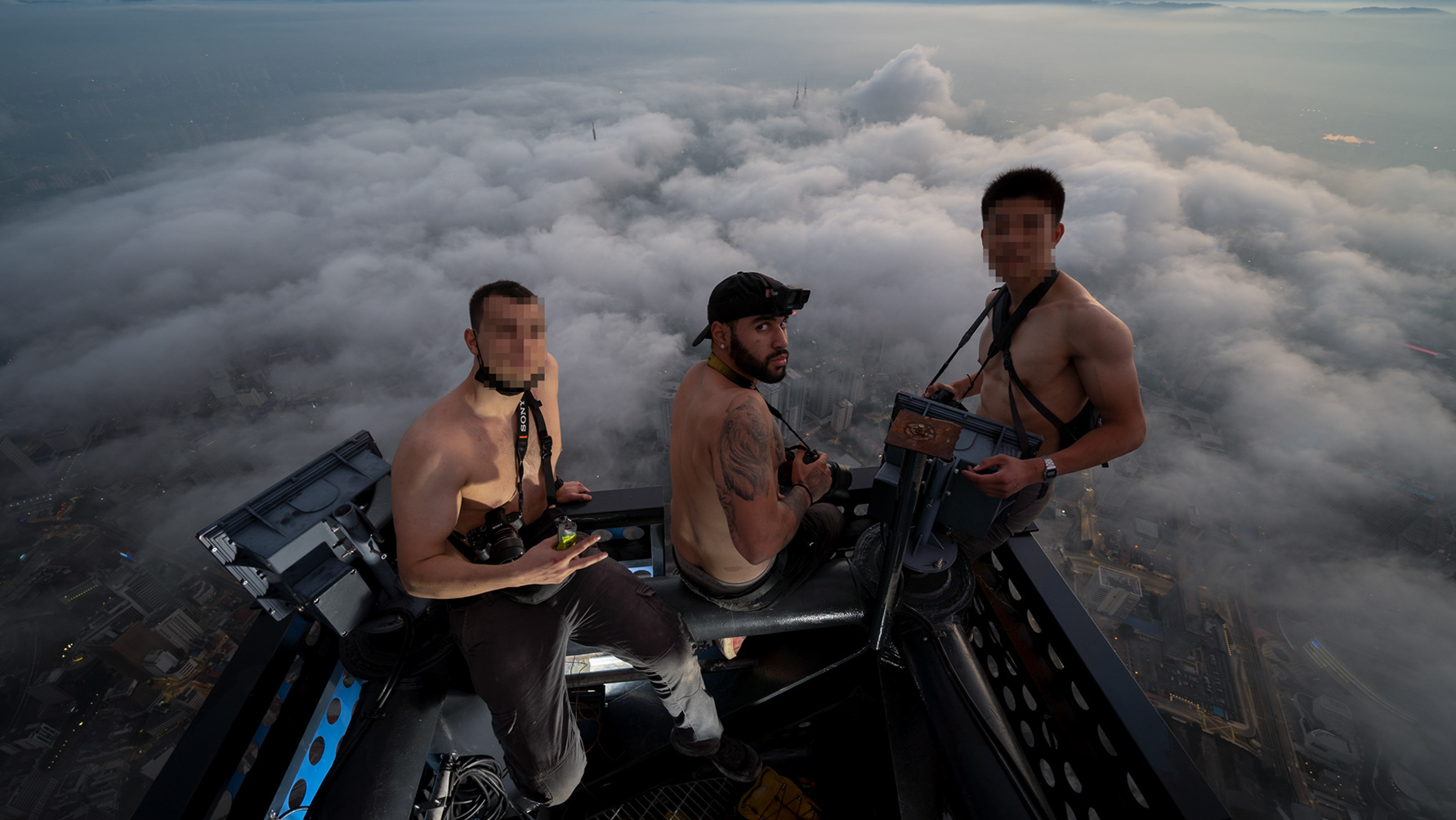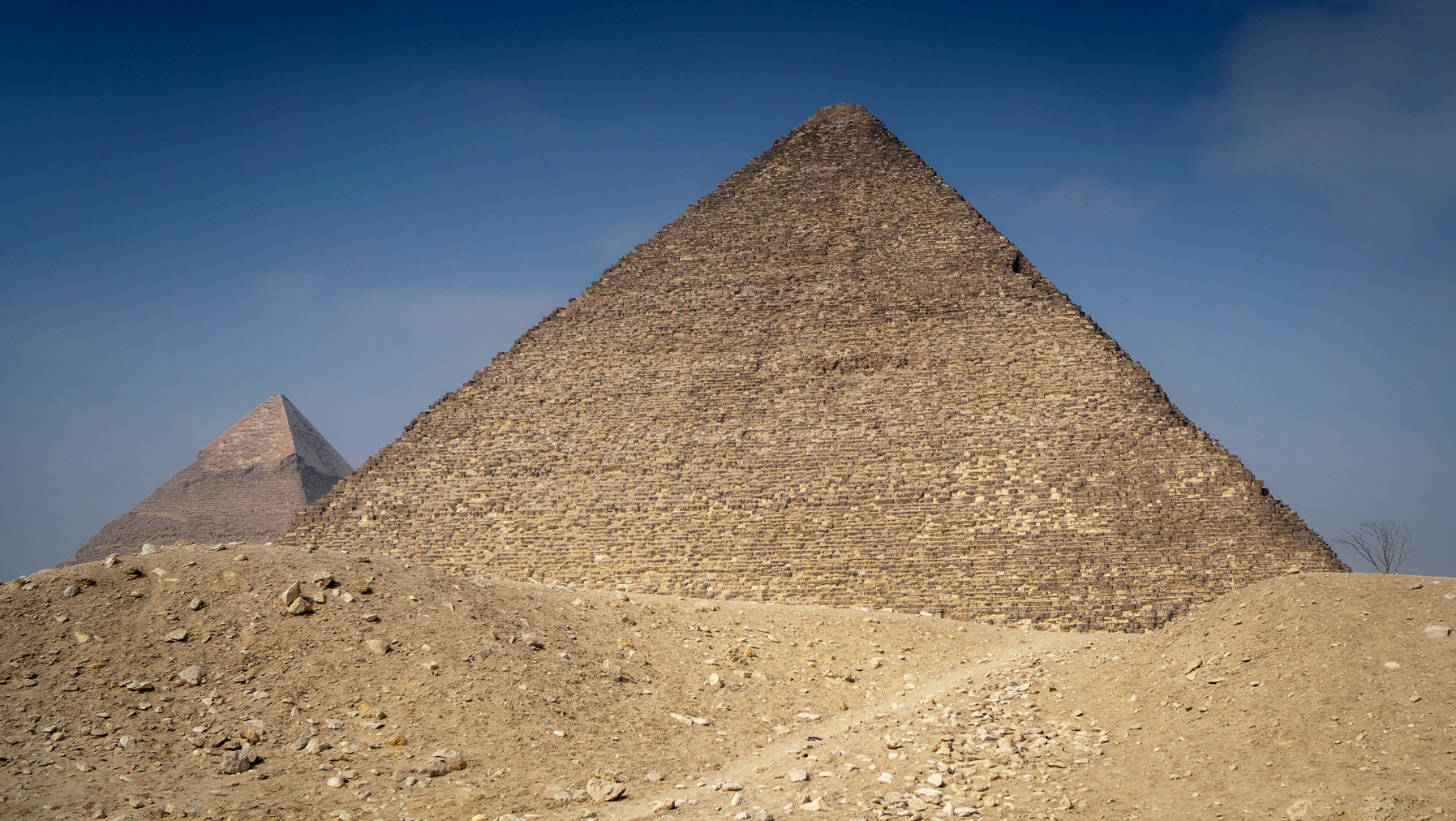The Mauritania Railway is the national railway of Mauritania, which opened in 1963. It consists of one solitary 704-kilometre railway line that links the iron mining centre of Zouérat to the port of Nouadhibou via Fderik and Choum.
Mauritania is the global leader in iron ore production and its second-largest exporter in Africa. The 200+ carriages are filled at the mine in Zouérat and then emptied in Nouadhibou.
In 2022, Mello, Eskilite, Josh, and I decided to ride that train.
We landed in Rabat, Morocco, on a November afternoon. A horde of disorganised taxi drivers welcomed us, shouting for our attention. They wouldn't drive us for the 250 dirhams advertised on their sign, so we told them we'd walk to our Airbnb instead - this was a bluff and a protest against 'tourist prices'. A few drivers followed us down the street, honking their horns until eventually stopping us and offering to drive for the stated price—a weird start.
After dropping our bags off at the accommodation, we went back out to attempt the tallest building in Morocco that was under construction at the time, Mohammed IV Tower. This unique tower stands 250 meters tall and is the third tallest building in Africa. Unfortunately, after clambering over the loud corrugated metal fence and creeping up a sandbank, Mello and I had rocks thrown at us by an angry security guard. Defeated, we ran back the way we had come. We might've tried again if we had more time in Rabat.
When morning came, we explored the streets of Rabat before heading to the train station to board a train to Casablanca.
From Casablanca, we would fly to Dakhla, a disputed territory in Western Sahara. Getting to Mauritania through Morocco was significantly cheaper than flying directly to Nouakchott, Mauritania's capital. Before the flight, we explored the nearby marketplace and snuck onto a hotel rooftop.
Following our arrival in Dakhla, we walked to 'Hotel Sahara', where our friend Mike was already resting and recovering from an illness. It was 1 am when we arrived, and his hotel was our only chance at a few hours' rest before our bus in the morning. At first, the cigarette-smoking hotel owner laughed at our suggestion for all five of us to share the tiny two-bed room, but soon accepted payment to the equivalent of £2 each, and we made ourselves comfortable. Mello and I shared a single bed and woke up with bug bites. At least our blood was the only thing getting sucked in that bed.
We arrived at the ticket office just before 7 am and were immediately scammed out of 200 Dirham by a rat of a ticket salesman. After some commotion and an attempted kidnapping, we were on our way to the border of Morocco and Mauritania. Shout out to Supra Tours.
We stopped twice for food, toilets, and a chat with locals. In the process, we made friends with a Frenchman, who joined our group as he had the same objective.
We crossed the border between Morocco and Mauritania by foot, partly to save some money but mainly for the excitement of walking 3km on a road surrounded by minefields. The landmines were leftover from the Western Sahara War between Morocco, Mauritania and the SADR between 1973 and 1991. Walking through this wasteland was our first real experience of being in the desert, and anticipation began to build as we approached our goal.
The Moroccan border was a smooth and fast procedure compared to the one in Mauritania, which took us through numerous passport checks and visa photos. Afterwards, we caught a cab from an overly helpful driver to our hotel in Nouadhibou. We then walked to the nearest restaurant and ordered spaghetti and pizza, the local cuisine.
In the morning, we gathered supplies and caught what was maybe a cab, but perhaps just a random car, straight to the train station, where we planned to board the freight train. I should mention that I don't think a single car in Nouadhibou would pass its MOT. We were seven deep in a five-seater with a cracked windscreen and 350,000 miles on the dashboard.
I spy with my little eye, something beginning with S. It's sand. There's sand everywhere. We arrived at the train station and sat in the shade by the tracks. The train was supposed to arrive at 3 pm, but it didn't. We played 'I Spy' and Uno for way too long. We then played the French version of Yahtzee, 'Yam', which was entertaining. After a while, we discovered the train was delayed and wouldn't arrive for eight more hours, so we waited even longer.
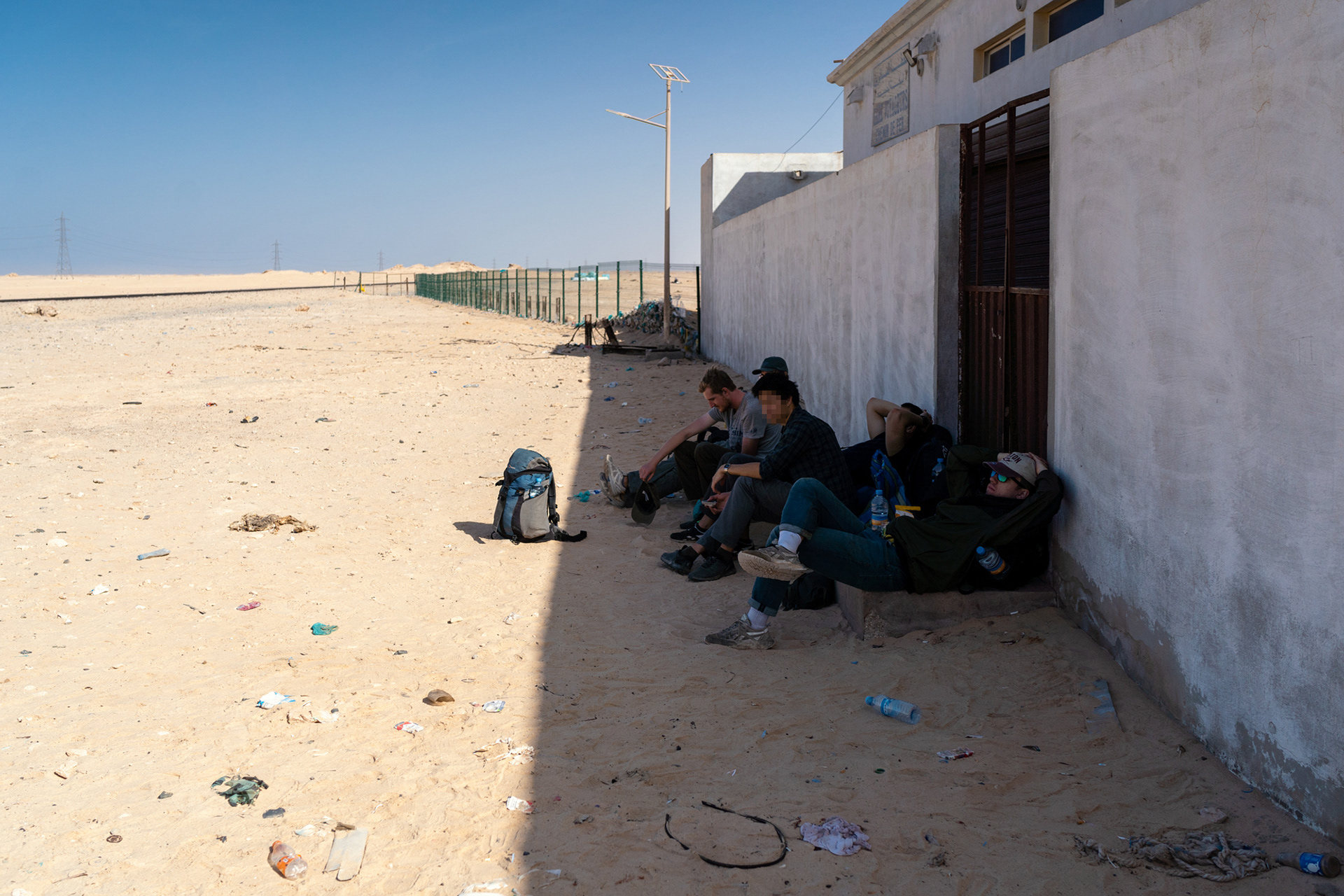
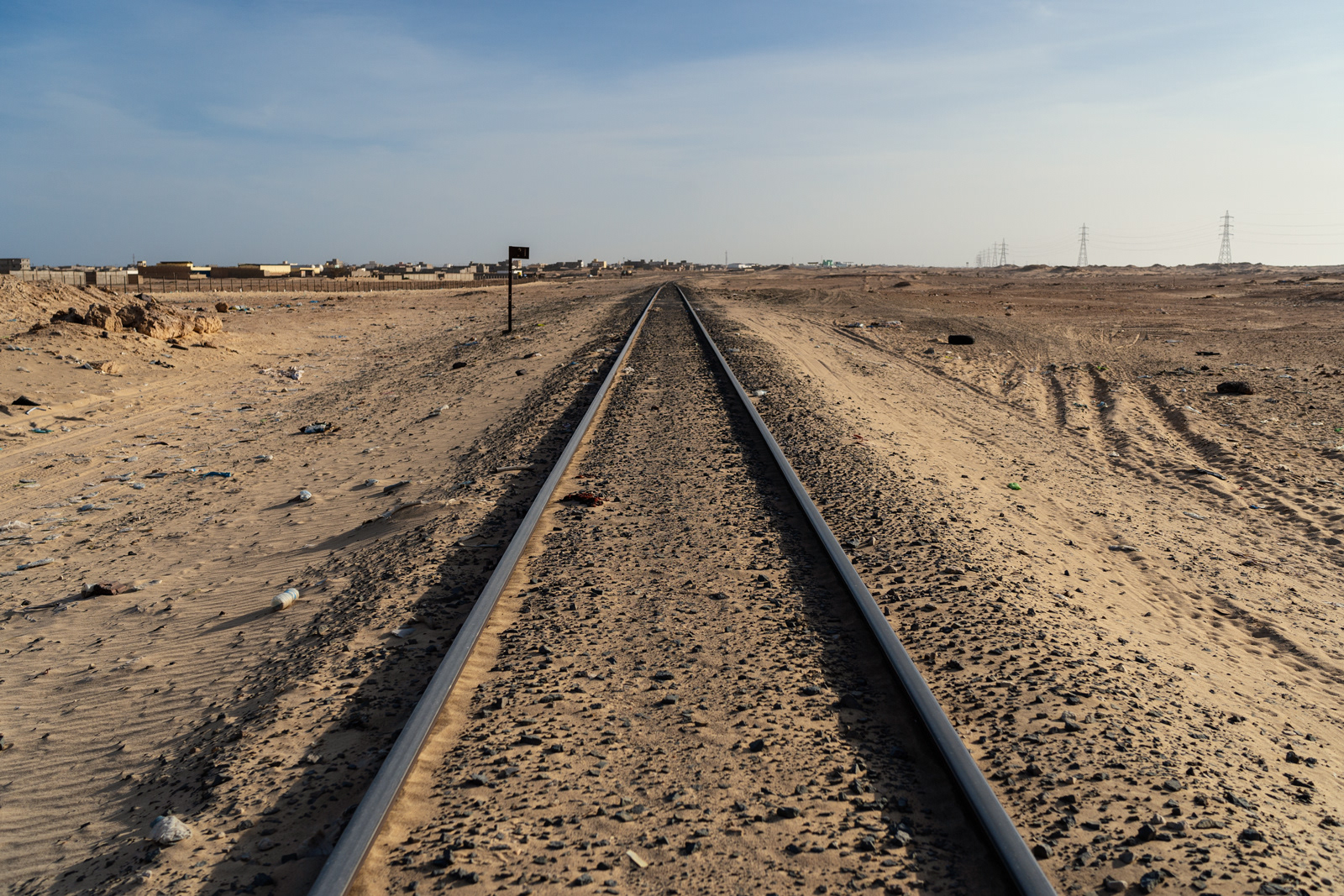
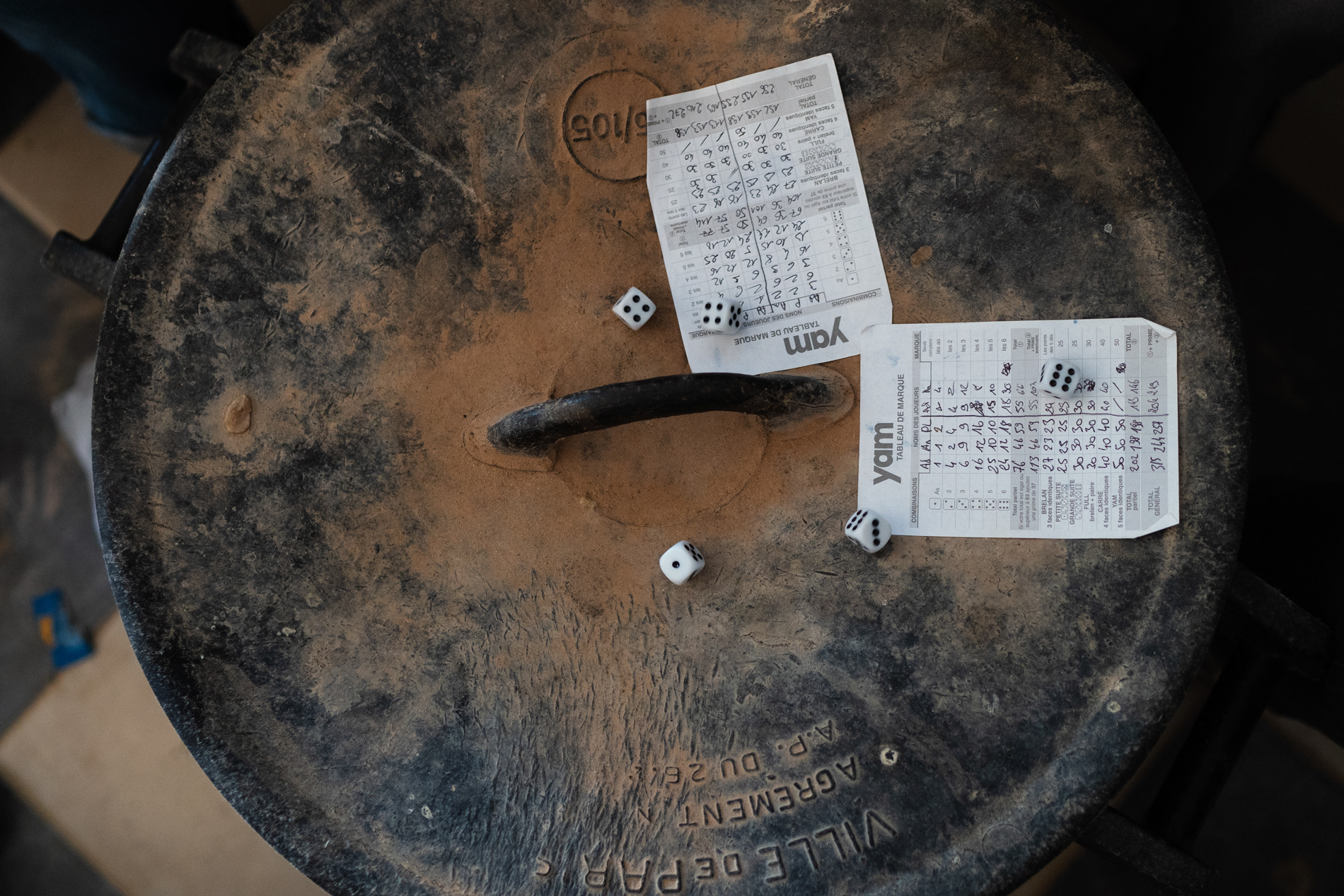
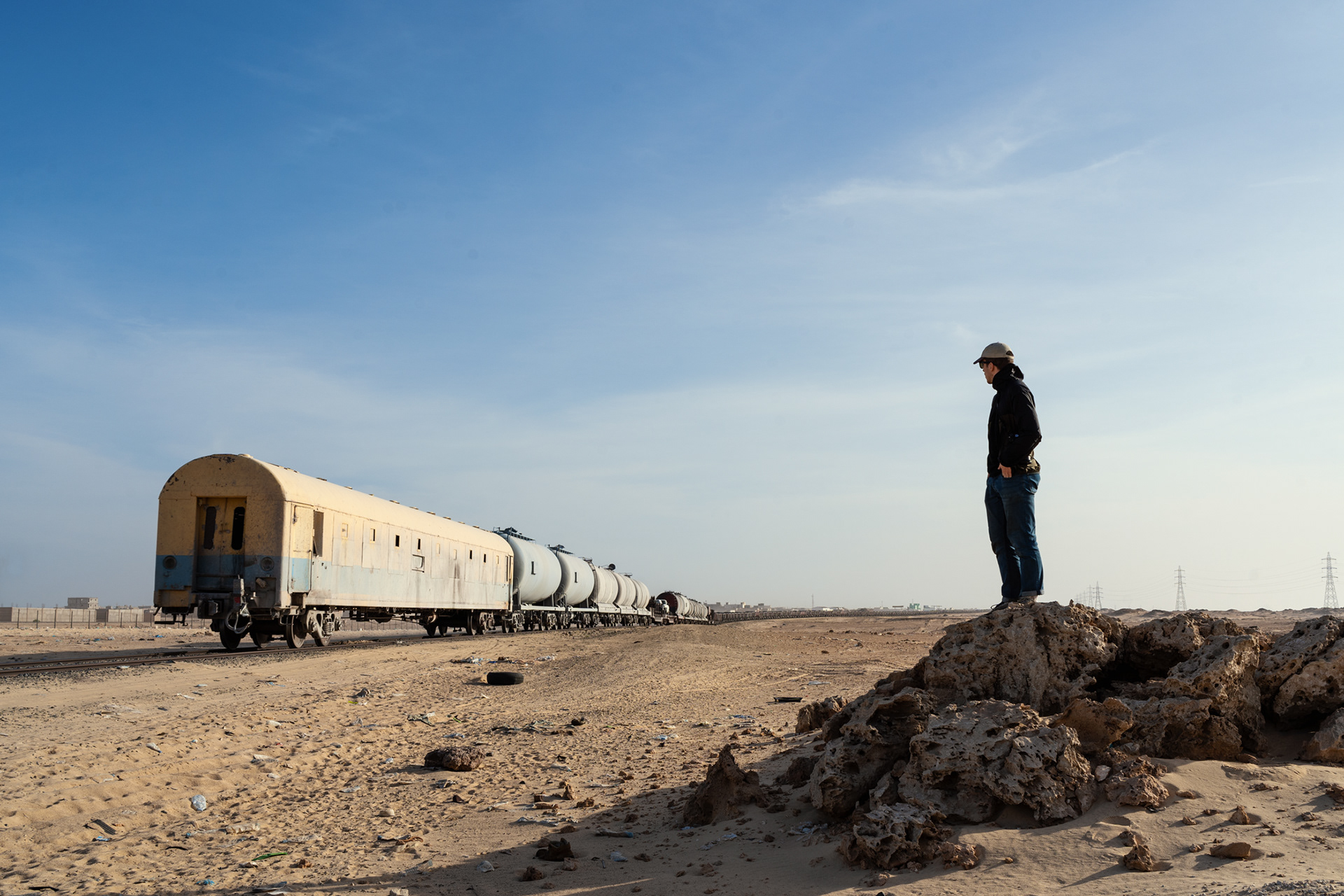
Sunset came around, so we walked into the desert to enjoy it.
Finally, the wagons rolled into the station, and we rushed to get on. After being shouted at by a policeman for taking photos, two locals followed us onto our wagon. They claimed the police had told them to observe us. We spoke about moving carriages in English, thinking the locals wouldn't understand, but suddenly one turned around and spoke in fluent English: "Oh, you don't want to share with us? Ok". Whilst awkward, we got what we wanted in the end. Sleeping in the same wagon as strangers doesn't scream "safety first", but I suppose neither does riding a freight train through the desert.
It was difficult to get a good photo at night as the wagon shook violently.
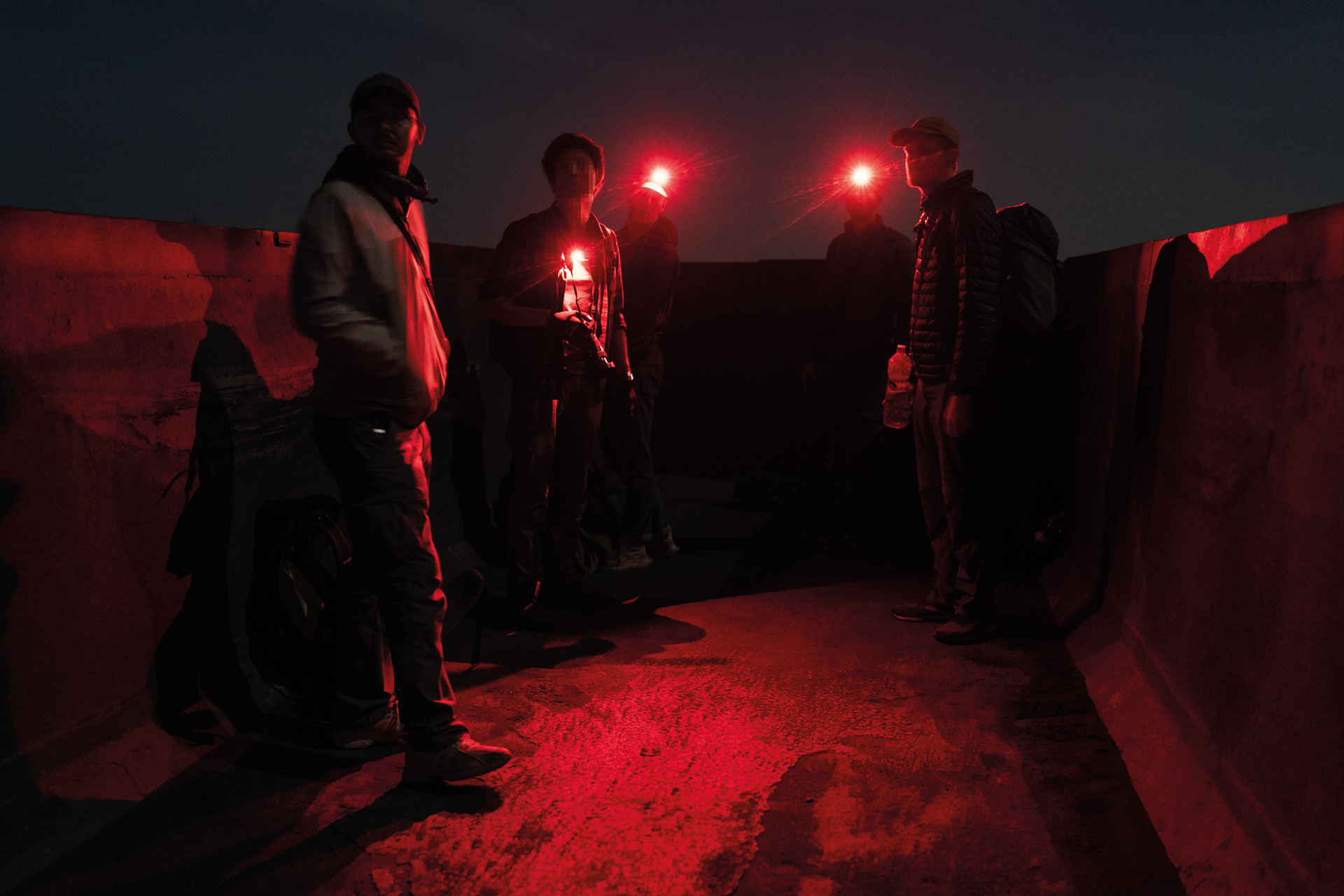
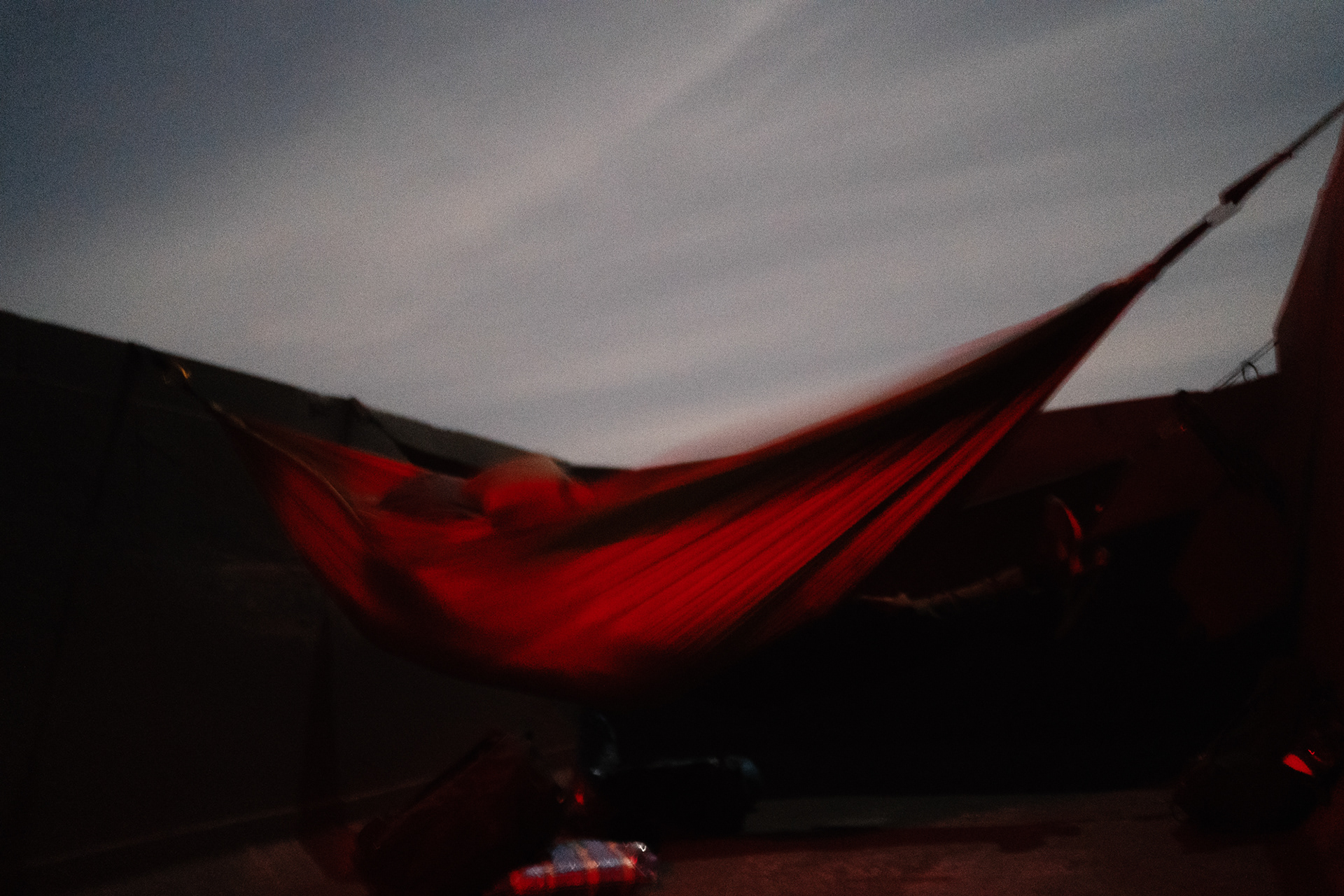
I soon fell asleep on the wagon's cold, hard floor in only a sleeping bag. We were supposed to buy roll mats in Nouadhibou but forgot.
Waking up felt like a cut scene out of a video game, Call of Duty, in particular. I was the last to wake, greeted by five masked guys in ski goggles and helped to my feet by Mello.
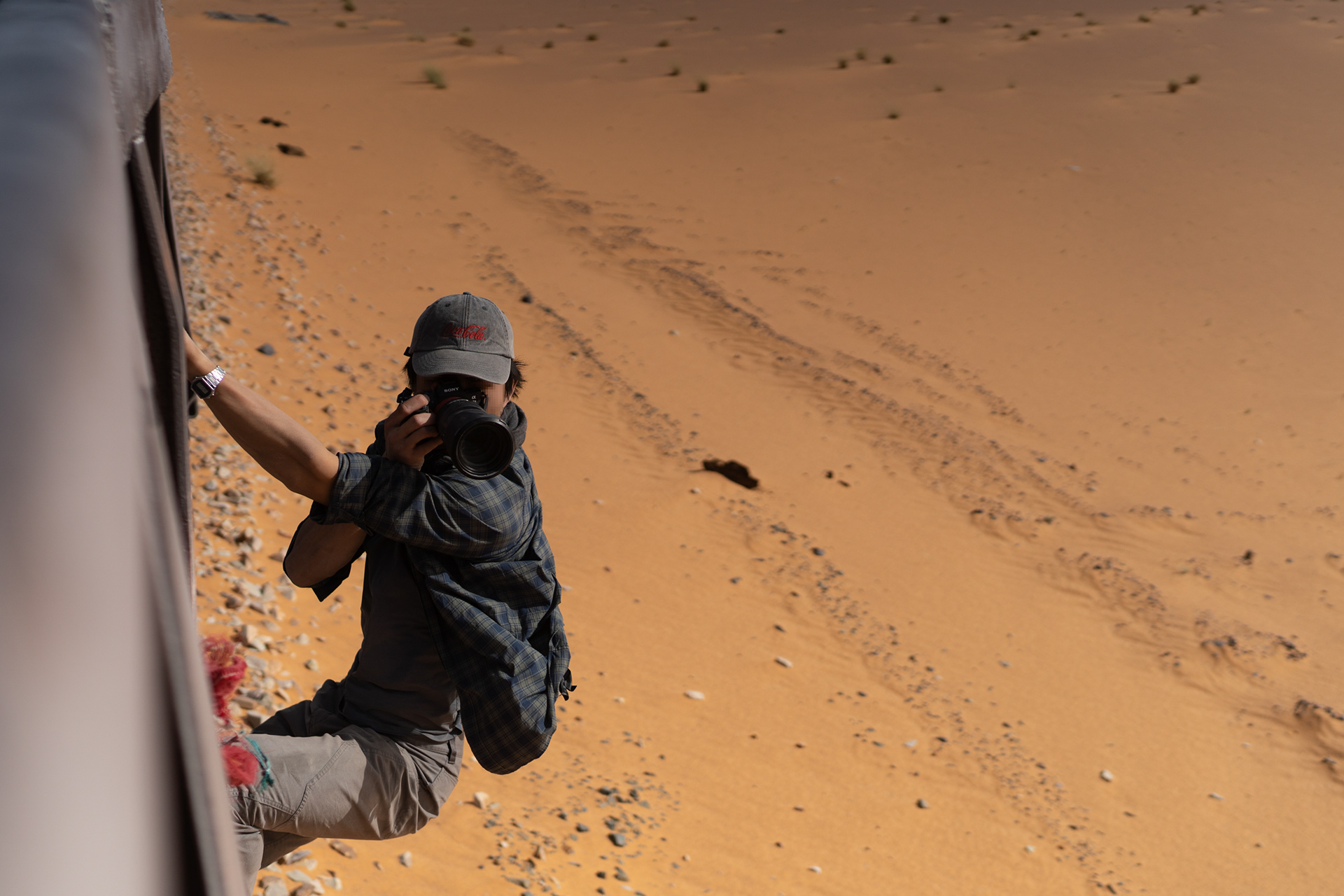
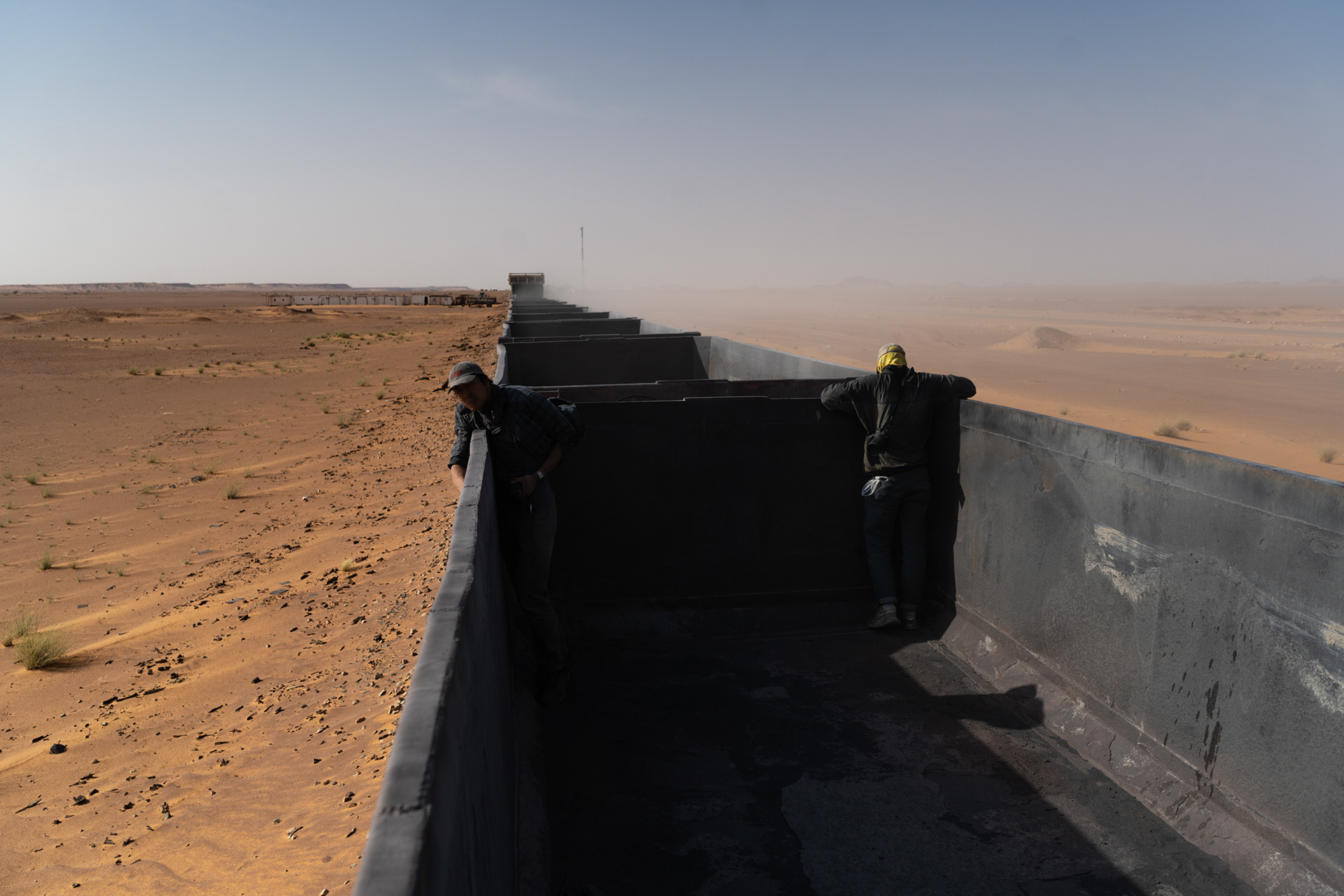
Shortly after I awoke, we stopped in Choum, where Mike and the Frenchman got off the train to head to Atar. It was just the four of us now.
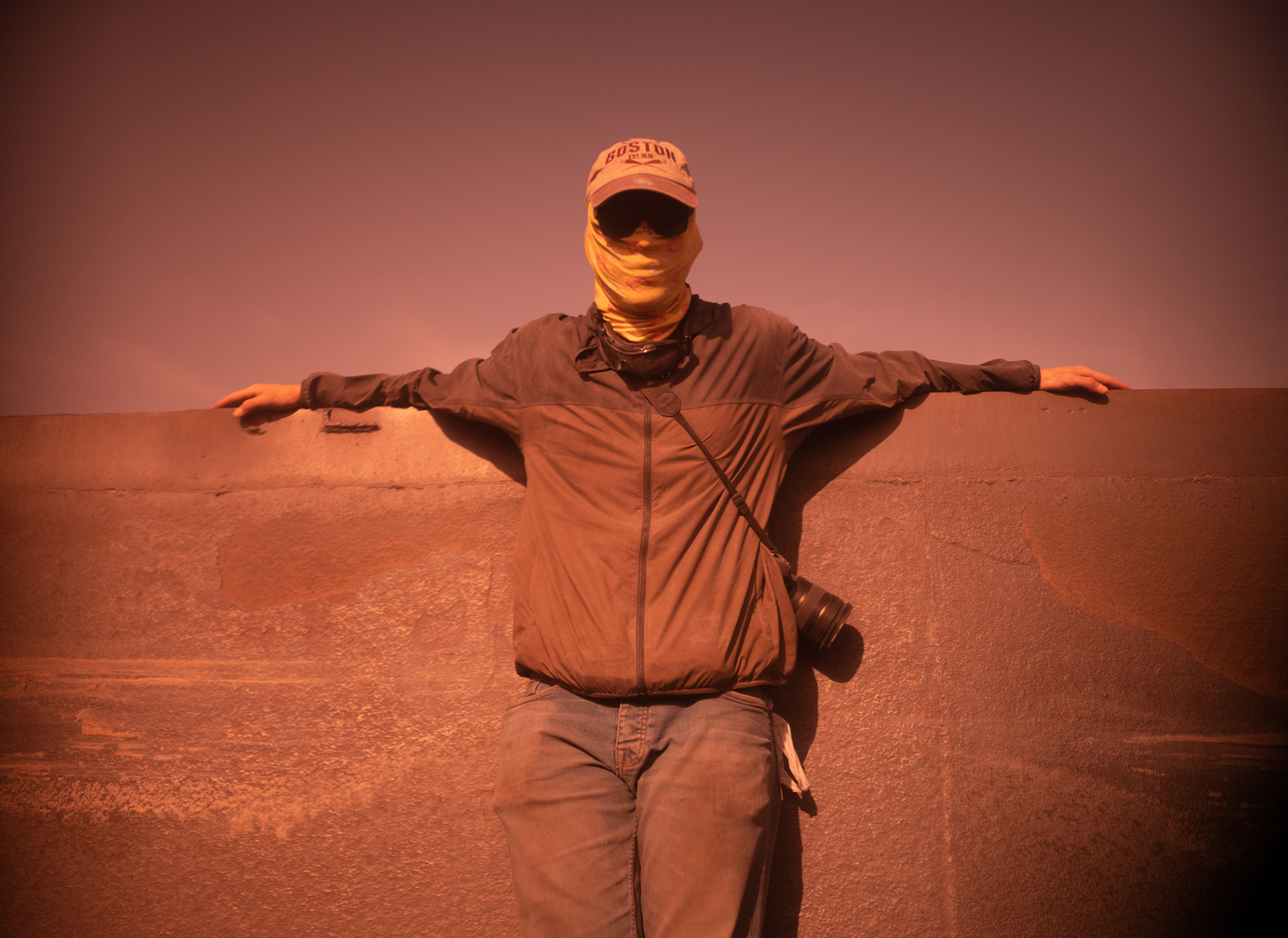
Anxious to be in a good spot to catch the iron ore-filled train on the return trip, we hopped off in Fderik, just before Zouerate, after fourteen hours of being on the train. The sun was beating down on us now, and there was no shade to shelter in. My hat had flown off into the desert as I was disembarking the wagon, so I spent the next fifteen minutes rummaging in the desert debris to find it while locals watched with intrigue.
A helpful worker told us to get on another train that stopped briefly as it would go to the train yard, a more suitable place to wait, so we did. Whilst leaning out of the open door, we noticed that the same worker was driving alongside the train on a nearby road. He began beeping and shouting at us to behave ourselves.
We made it to the train depot and waited ages for the ore train, but were thankful for the shade. I lay with my head on one of the rails and took a nap, a new experience. The depot was full of trash and stank of faeces, which made sense once the cleaner came around. To clean the passenger carriage, he kicked all the garbage out onto the floor of the depot.
We boarded the same passenger train back to where we hopped off earlier, sharing a crowded wagon with a goat and some locals whilst watching the sun set over Zouerate.
Eventually, we jumped off the passenger train and onto the iron ore train in the darkness. I found a good spot and moulded myself into a comfortable position.
It was hard to settle initially because the train was going fast, so the wind whipped iron ore into our faces. I took off my down jacket, zipped it up around my head and fell straight to sleep, but the others weren't so lucky.
We woke at sunrise and stared at the horizon silently until the pale orange sky turned vibrant blue.
The train had stopped in the early morning, and two locals jumped on the wagon in front, travelling with large canisters. They covered themselves with heavy blankets and slept through the day.
We rode the train back to Nouadhibou, a total of sixteen hours and 704 kilometres.
Accomplishment washed over me as we relaxed in the desert sun. I spent most of the time admiring the scenery and listening to Johnny Cash.
Despite this route gaining a lot of internet attention and becoming quite mainstream, it still felt unique enough to enjoy. It was also nice not to worry about the threat of going to jail, as the journey was legal at the time.
Finally, we arrived in Nouadibhou, stained black with iron ore. Wet wipes and tissues helped a bit, but we looked very rugged when passing back through the borders and to our hotel in Dakhla. It took hours to rid ourselves of the filthy, sooty ore.
After some well-needed cleaning, rest, and food, we flew back home via Casablanca.
